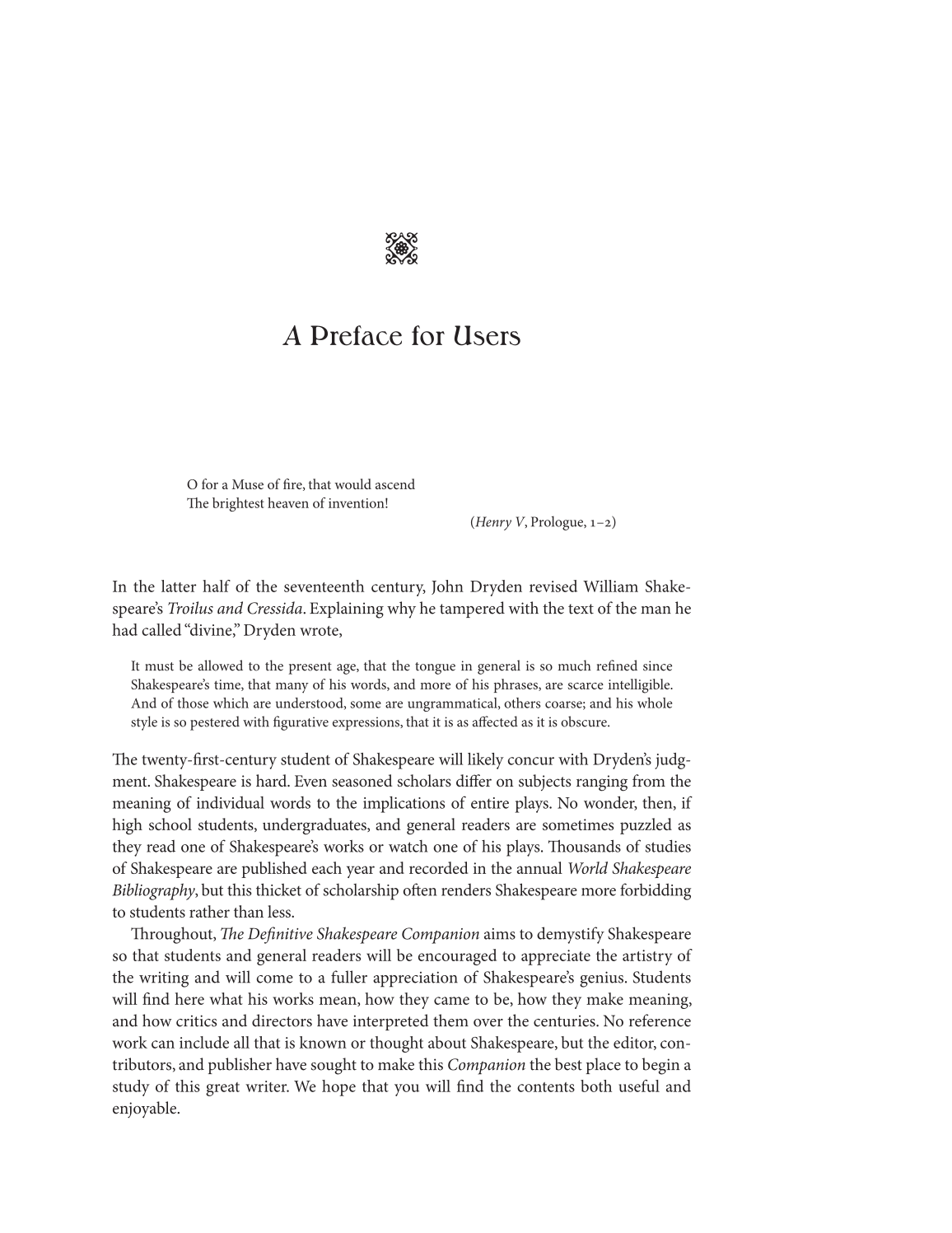O for a Muse of fire, that would ascend
The brightest heaven of invention!
(Henry V, Prologue, 1–2)
In the latter half of the seventeenth century, John Dryden revised William Shake-
speare’s Troilus and Cressida. Explaining why he tampered with the text of the man he
had called “divine,” Dryden wrote,
It must be allowed to the present age, that the tongue in general is so much refined since
Shakespeare’s time, that many of his words, and more of his phrases, are scarce intelligible.
And of those which are understood, some are ungrammatical, others coarse; and his whole
style is so pestered with figurative expressions, that it is as affected as it is obscure.
The twenty-first-century student of Shakespeare will likely concur with Dryden’s judg-
ment. Shakespeare is hard. Even seasoned scholars differ on subjects ranging from the
meaning of individual words to the implications of entire plays. No wonder, then, if
high school students, undergraduates, and general readers are sometimes puzzled as
they read one of Shakespeare’s works or watch one of his plays. Thousands of studies
of Shakespeare are published each year and recorded in the annual World Shakespeare
Bibliography, but this thicket of scholarship often renders Shakespeare more forbidding
to students rather than less.
Throughout, The Definitive Shakespeare Companion aims to demystify Shakespeare
so that students and general readers will be encouraged to appreciate the artistry of
the writing and will come to a fuller appreciation of Shakespeare’s genius. Students
will find here what his works mean, how they came to be, how they make meaning,
and how critics and directors have interpreted them over the centuries. No reference
work can include all that is known or thought about Shakespeare, but the editor, con-
tributors, and publisher have sought to make this Companion the best place to begin a
study of this great writer. We hope that you will find the contents both useful and
enjoyable.
A Preface for Users





















































































































































































































































































































































































































































































































































































































































































































































































































































































































































































































































































































































































































































































































































































































































































































































































































































































































































































































































































































































































































































































































































